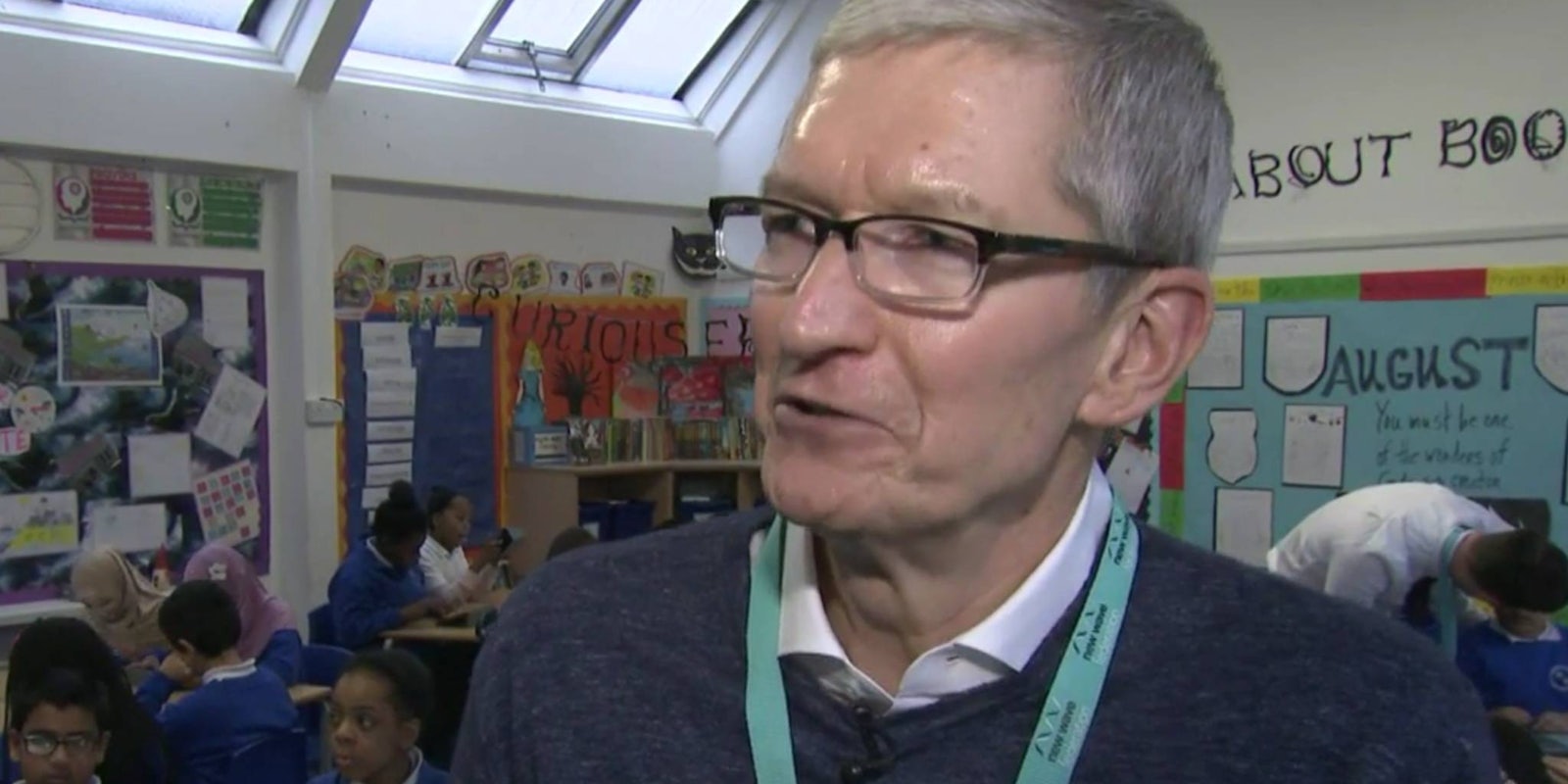It seems as if everyone has a take on so-called “fake news” these days, even though its definition is getting murkier and less clear.
Originally coined to describe false information written up to trick people into thinking they’re reading a genuine news story from a credible source, it’s now become a contested and appropriated political phrase. In recent weeks, the Trump administration has taken to specifically branding any embarrassing or critical yet factual-based reports as fake news, with the president himself describing all of CNN that way.
Simply put, it’s increasingly becoming yet another contested concept, appropriated into a sort of weaponized political cudgel. But from the sound of things, Apple CEO Tim Cook is interested in redirecting people’s attention back toward what it actually means.
In an interview with the Telegraph this weekend, Cook called for a public awareness and education campaign to combat the surging tide of fake news. “It has to be ingrained in the schools, it has to be ingrained in the public,” Cook told the newspaper. He continued.
There has to be a massive campaign. We have to think through every demographic. We need the modern version of a public-service announcement campaign. It can be done quickly if there is a will.
Cook also commented that fake news was “killing people’s minds,” and he suggested that “it’s almost as if a new course is required for the modern kid, for the digital kid.” It’s a suggestion that’s bound to be received eagerly by people who were turned off by Facebook’s decidedly lax attitude toward fake news during the 2016 presidential campaign season.
The social media giant has since implemented a fake news filter in advance of the French and German presidential elections, in which consulting media companies check popularly shared articles for their veracity.
Of course, the actual challenge likely dwarfs the simplicity and straightforwardness of Cook’s proposal. Part of the dilemma in discerning fake and fabricated news from the genuine article is separating the out-and-out purely false content from the disputed, the controversial, or all the suggestive half-truths. The ambiguity between these things is partly what’s allowed the Trump administration to appropriate the term in recent weeks, using it against the mainstream media by arguing that the existence of quickly confessed-to and corrected errors in reporting—a tried-and-true, unavoidable aspect of journalism—can render an outlet “fake news.”
“All of us technology companies need to create some tools that help diminish the volume of fake news,” Cook told the Telegraph. “We must try to squeeze this without stepping on freedom of speech and of the press, but we must also help the reader. Too many of us are just in the complain category right now and haven’t figured out what to do.”
According to CNN Money, an Apple spokesperson offered no comment on whether the tech company, which has been the most profitable corporation on Earth for two years running, would put any money toward an anti-fake news public awareness campaign.


